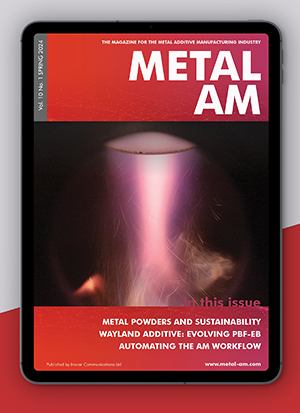Freemelt and UK Atomic Energy Authority enter phase 2 for the further development of fusion energy power plants
April 30, 2024
Freemelt AB, based in Mölndal, Sweden, and the UK Atomic Energy Authority (UKAEA) have been collaborating since 2023 on the development of material processes for the Electron Beam Powder Bed Fusion (PBF-EB) Additive Manufacturing of tungsten components for use in fusion energy power plants. Following the successful results of the initial project, UKAEA has now committed to phase 2, where Freemelt will develop and manufacture tungsten components for the further development of fusion energy power plants.
The energy industry is undergoing significant development driven by technological advancements and increasing awareness of the need for sustainable fossil-free energy sources. Among these, fusion energy has gained extra interest as a potential solution. UKAEA is the UK’s national organisation responsible for the delivery of sustainable fusion energy. Supported and funded by the UK government, UKAEA leads fusion research and is working to drive commercial fusion energy development.
Freemelt CEO Daniel Gidlund commented, “We are excited and motivated to enhance our partnership with UKAEA and be an active part in the rapid advancement of renewable energy initiatives. Fusion energy applications are among the most challenging ones to provide components for, due to the harsh conditions, therefore it is especially rewarding that Freemelt has been given the trust to support UKAEA in this endeavour.”
Doctor Miguel Zavala-Arredondo, UKAEA, shared, “Fusion is one of the great scientific and engineering challenges of our time. I am pleased that, following the successful results of our first project, we will continue the partnership with Freemelt, focusing on scalability and increasing technology readiness.”
Fusion occurs when light nuclei fuse to form a heavier nucleus, a process that releases enormous amounts of energy when it occurs as a collective process in plasma. Fusion is the opposite of nuclear fission, the reaction that is used in nuclear power stations today, in which energy is released when a nucleus splits apart to form smaller nuclei.
Fusion is based on the same processes that power the sun and stars. It has the potential to be a safe and sustainable part of the world’s future energy supply due to its potential to generate abundant amounts of low-carbon energy without producing high-level or long-lived radioactive waste.
Download Metal AM magazine

















